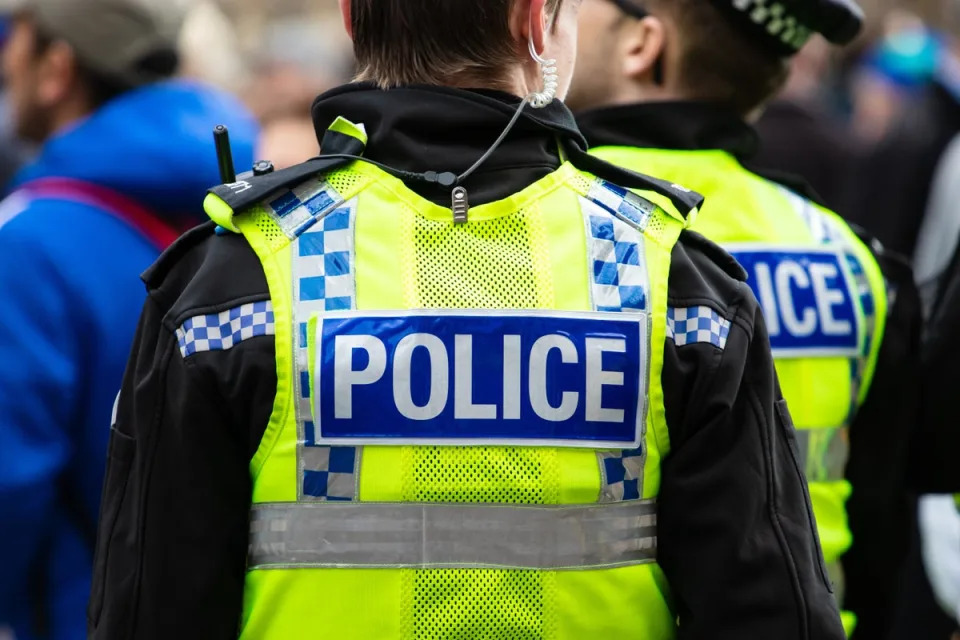UK Police strip searching children as young as eight, damning report finds
Joe Middleton
Sun, 26 March 2023

More than a quarter of children strip-searched were aged between 10 and 15
Police stopped and strip-searched more than 2,800 children in four years - with the youngest only 8-years-old, a damning new report has revealed.
Using data for forces across England Wales, Children’s Commissioner Dame Rachel de Souza found that nearly a quarter of children strip-searched were aged between 10 and 15.
More than a third (38%) of those strip-searched were black, and with black children making up 5.9% of the population that makes them more than six times more likely to be targeted.
Overall, 2,847 strip-searches took place between 2018 and mid-2022 of children aged between eight and 17.
The report will be published on Monday and comes after the Child Q scandal which came to light last March.
The 15-year-old black schoolgirl was strip-searched by police without another adult present and while on her period after being wrongly suspected of carrying cannabis at school. No drugs were found, her parents were not told of the search and she was later sent home by taxi.
A safeguarding report into the incident said that racism was “likely” to have been a factor in the search and that it should never have happened.
After the scandal data revealed that Met Police officers strip-searched 650 children between the ages of 10-17 between 2018 and 2020, with 58% of those searched were black children.
Speaking a day before the publication of the report, Dame Rachel told the Sunday Times the findings had “kept her awake at night” and has called on police chiefs to limit strip-searching of children for only “life or death” situations.

Dame Rachel de Souza is England’s Children’s Commissioner (UK government)
“The police really need to get their act together on this,” she told the newspaper. “We’ve had a report on the Met but the data that I’m going to share tomorrow I think is almost more shocking.
“My hope was that Child Q was the only child that this would have ever happened to in a school. But the data I am about to release smashed that to smithereens.
“There is this one case where a boy was strip-searched four times and four times his mother picked him up from the police station but nobody told her, including him, that he had been strip-searched.”
A Home Office spokesperson said: “Strip-search is one of the most intrusive powers available to the police. No-one should be subject to strip-search on the basis of race or ethnicity and safeguards exist to prevent this.
“Any child subject to a strip search should be accompanied by an appropriate adult unless there is an urgent risk of serious harm, or where the child specifically requests otherwise and the appropriate adult agrees. Such searches must be carried out by an officer of the same sex as the child.
“We take the concerns raised about children’s safeguarding extremely seriously. The Independent Office for Police Conduct is currently investigating several high-profile incidents of strip-search of children and it is vital that we await their findings.”
Joe Middleton
Sun, 26 March 2023

More than a quarter of children strip-searched were aged between 10 and 15
Police stopped and strip-searched more than 2,800 children in four years - with the youngest only 8-years-old, a damning new report has revealed.
Using data for forces across England Wales, Children’s Commissioner Dame Rachel de Souza found that nearly a quarter of children strip-searched were aged between 10 and 15.
More than a third (38%) of those strip-searched were black, and with black children making up 5.9% of the population that makes them more than six times more likely to be targeted.
Overall, 2,847 strip-searches took place between 2018 and mid-2022 of children aged between eight and 17.
The report will be published on Monday and comes after the Child Q scandal which came to light last March.
The 15-year-old black schoolgirl was strip-searched by police without another adult present and while on her period after being wrongly suspected of carrying cannabis at school. No drugs were found, her parents were not told of the search and she was later sent home by taxi.
A safeguarding report into the incident said that racism was “likely” to have been a factor in the search and that it should never have happened.
After the scandal data revealed that Met Police officers strip-searched 650 children between the ages of 10-17 between 2018 and 2020, with 58% of those searched were black children.
Speaking a day before the publication of the report, Dame Rachel told the Sunday Times the findings had “kept her awake at night” and has called on police chiefs to limit strip-searching of children for only “life or death” situations.

Dame Rachel de Souza is England’s Children’s Commissioner (UK government)
“The police really need to get their act together on this,” she told the newspaper. “We’ve had a report on the Met but the data that I’m going to share tomorrow I think is almost more shocking.
“My hope was that Child Q was the only child that this would have ever happened to in a school. But the data I am about to release smashed that to smithereens.
“There is this one case where a boy was strip-searched four times and four times his mother picked him up from the police station but nobody told her, including him, that he had been strip-searched.”
A Home Office spokesperson said: “Strip-search is one of the most intrusive powers available to the police. No-one should be subject to strip-search on the basis of race or ethnicity and safeguards exist to prevent this.
“Any child subject to a strip search should be accompanied by an appropriate adult unless there is an urgent risk of serious harm, or where the child specifically requests otherwise and the appropriate adult agrees. Such searches must be carried out by an officer of the same sex as the child.
“We take the concerns raised about children’s safeguarding extremely seriously. The Independent Office for Police Conduct is currently investigating several high-profile incidents of strip-search of children and it is vital that we await their findings.”
No comments:
Post a Comment